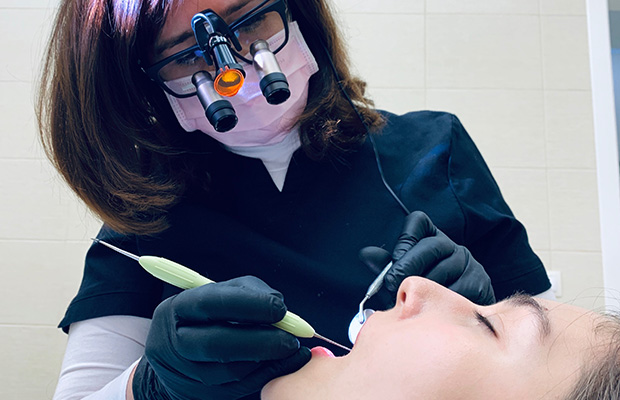
When you have a tooth that has nerve damage due to an infection or decay, the solution to saving that tooth may lie in a root canal treatment. By keeping your natural teeth, you can avoid the need for an artificial tooth, keep the alignment of your teeth, and prevent issues with your jaw. To maintain proper functioning, your tooth does not necessarily need it’s nerve, so the removal through a root canal will not cause any significant damage or loss of functionality.
A root canal is a major procedure, so pain after a root canal is normal. A root canal involves deep cleaning inside the canals (the inner chamber of the root) of your tooth, which can in turn irritate surrounding nerves and gums. The pain shouldn’t last forever. In fact, a root canal is meant to help you avoid pain related to a decaying or fractured tooth. It’s normal to experience mild to moderate pain for a few days after a root canal. Any pain beyond this point may warrant additional cleaning of the canals or other procedures from your dentist.
After your root canal procedure, you must be sure to follow your dentist’s instructions. Proper care is mandatory to maintain a healthy mouth. The following are some important tips to follow after root canal treatment:
Wait to eat: Wait to eat until the numbness from the localized anesthesia wears off to avoid biting your tongue or gums.
Take your prescriptions as directed: It is necessary to take any prescribed antibiotics as directed in order to prevent any infection. The discomfort you feel after a root canal treatment can typically be treated with analgesics (painkillers). However, keep in mind that most people only experience pain for a short amount of time. So, if you have a prolonged period of pain, contact your dentist immediately.
Keep the area clean: Make sure that you keep the tooth and gums where your root canal occurred very clean. You can do so by continue to brush and floss regularly and gently rinsing your mouth.
Be careful to not put pressure on your infected tooth: Your tooth will be very tender so be sure to not put too much pressure on it through grinding or clenching your jaw.
Avoid certain foods: Any food that is hard, chewy, or crunchy should be avoided right after you have a root canal. In addition, your tooth may be temporarily sensitive to very hot or very cold foods as it heals, so mild or room-temperature foods like soft sandwiches are best. For the first few days you should abstain from hot beverages, alcohol, smoking, drinking from straws, hard food, or eating foods that you have to suck (like lollipops and toffees). These foods and drinks are known to inflame the gums and could cause pain and swelling, slowing your recovery.
Gargle with warm salt water: One of the biggest risks after root canal is that the gum surrounding your tooth becomes infected. This can cause considerable pain, so it's obviously best avoided. Regularly gargling with warm, slightly salty water will help keep your mouth clean and ward off infection so that you can continue your recovery.
Consider getting a crown for your tooth: The tooth in which you had your root canal will remain more intact if a crown is placed upon it. A crown can also prevent further complications and promote more functionality.
Contact your dentist: If you have pain that lasts more than a few days, or swelling that worsens with time, call your dentist. These may be symptoms of a new infection– one that requires immediate attention.